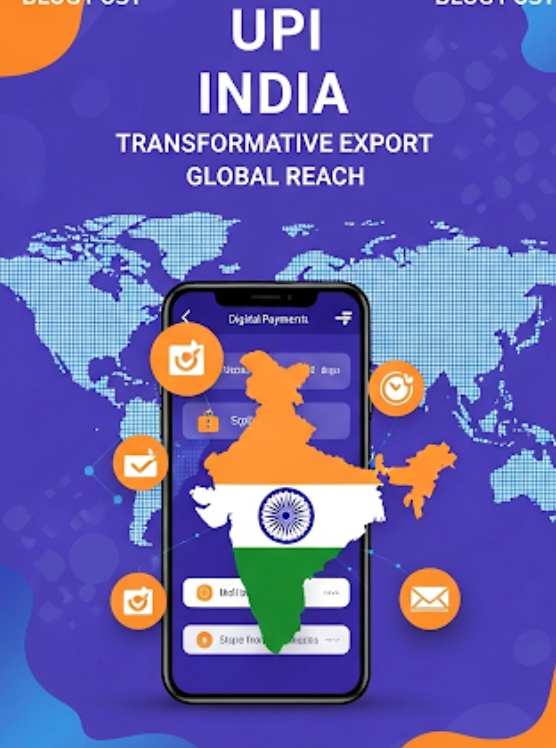BHARAT RISING: India’s Digital Payment Revolution Is Going Global
🌏 From Domestic Disruption to Global Demand: The UPI Phenomenon
Nagarjun
6/18/20253 min read


India’s Unified Payments Interface (UPI) has transformed how a billion-plus people move money -seamlessly, securely, and in real time. What began as an innovation to empower Indian citizens is now positioning itself as a soft power tool with global relevance. Countries across continents are watching, adopting, or eagerly expressing interest. From Singapore to Mauritius - and now, potentially Cyprus - UPI is becoming one of India’s most influential exports.
💡 What Is UPI & Why Has It Captivated the World?
Instant, Interoperable & Free: UPI allows bank-to-bank transfers with zero fees — a feat unheard of in many developed economies.
Financial Inclusion at Scale: Its adoption has empowered rural users, small businesses, and women, driving India’s financial inclusion story.
Tech-Forward Yet Human-Centric: Built on India Stack, UPI blends digital efficiency with grassroots impact.
This unique combination of technology and trust is why the world is paying attention.
🌐 Global Expansion: UPI’s Growing International Footprint
India has already signed agreements to link UPI with several countries:
Singapore: Cross-border UPI-Pay Now is already live.
France: Tourists can now use UPI at the Eiffel Tower.
UAE, Bhutan, Nepal: Adoption for tourists and residents alike.
Mauritius and Sri Lanka: Recently joined the growing club of UPI-linked nations.
Now, Cyprus has also shown keen interest in deploying UPI technology - signalling how even European nations are recognizing the value of India’s digital innovation.
🧭 Why Cyprus? Understanding the Strategic Interest
Cyprus - positioned at the crossroads of Europe, Asia, and Africa - seeks to modernize its financial services and attract Indian tourists, students, and businesses. UPI could offer:
Seamless transactions for Indian travellers and expats.
An opportunity for Cypriot merchants to tap into the Indian consumer base.
Collaboration between European regulators and India’s fintech prowess.
This move could become a powerful case study in East-West financial collaboration.
🌍 Mapping UPI’s Global Expansion: Where Bharat’s Payment Rails Are Landing
India’s Unified Payments Interface (UPI) is fast emerging as a transformative export — not just technologically but as a tool of financial diplomacy.
Here’s a breakdown of the countries where UPI is making waves, with an emphasis on the rollout stages and why each is strategically important.
🇸🇬 Singapore – Fully Live
India and Singapore achieved a major milestone with live cross-border linkage between UPI and Singapore’s Pay Now. This allows instant, real-time remittance between Indian and Singaporean bank accounts using just phone numbers — a massive upgrade for migrant workers, students, and tourists. It also sets a global benchmark for interoperability between sovereign payment systems.
🇫🇷 France – Tourist Payments Enabled
In a soft power masterstroke, France became the first European country to enable UPI payments at iconic landmarks like the Eiffel Tower. Indian tourists can scan and pay via UPI, reducing dependency on foreign exchange and card fees. This marks a new dimension in cultural diplomacy — tourism powered by Indian fintech.
🇦🇪 🇧🇹 🇳🇵 UAE, Bhutan, and Nepal – Dual Utility Regions
These neighbouring and trade-linked nations have adopted UPI for both resident and visitor transactions:
UAE: UPI is integrated with local payment apps to ease money transfers for NRIs.
Bhutan: First country to accept and issue RuPay cards and now enables UPI.
Nepal: Enabled UPI for inward remittances and domestic merchant payments.
These ties deepen India’s influence in the South Asia and Gulf corridors — crucial for economic and people-to-people linkages.
🇲🇺 🇱🇰 Mauritius & Sri Lanka – New Entrants (2024)
Both countries launched UPI infrastructure recently, enabling person-to-person (P2P) and person-to-merchant (P2M) payments via QR codes. This signals UPI’s relevance even in countries with smaller populations and developing banking systems — a clear validation of its scalability and cost-effectiveness.
🇨🇾 Cyprus – Interest at the Dialogue Table
Now, Cyprus has expressed official interest in exploring UPI adoption, viewing it as a bridge for digital commerce and tourism integration with India. For Cyprus — a nation at the intersection of Europe and the Middle East — adopting UPI would:
Position it as a digital-first tourism hub for Indian travelers.
Foster fintech cooperation with India, a G20 digital leader.
Signal broader EU readiness to accept India-born public tech.
🚀 UPI as a Symbol of India’s Digital Diplomacy
Beyond payments, UPI is becoming a symbol of India’s technological credibility and trustworthiness. Consider this:
India is offering UPI to countries with no strings attached — a true example of soft power.
Unlike Western models tied to profit or geopolitical influence, India’s approach is inclusive and developmental.
UPI is increasingly being seen as a diplomatic bridge — tech for trust, not dominance.
🧠 Economic, Strategic, and Cultural Impacts
Economic: Countries adopting UPI benefit from low-cost infrastructure and innovation transfer.
Strategic: India deepens its financial influence without hard politics.
Cultural: The term "Bharat rising" is no longer just emotional — it’s visible in QR codes, digital rails, and economic alignment.
🔍 SEO Spotlight:
Here’s how this aligns:
Keywords: "UPI international expansion", "India digital soft power", "Cyprus UPI integration", "Bharat fintech success story"
🛕 Closing: How India’s Soft Power Is Expanding
UPI isn’t just a payments system. It’s a proof point that India can build world-class platforms rooted in public good.
In a time of digital fragmentation, India is exporting inclusion, efficiency, and trust. That’s the essence of soft power - influencing without imposing.
And through innovations like UPI, Bharat isn’t just rising. It’s leading.
to schedule a free introductory appointment
+91 81234 26999
FINSPIREYOU@OUTLOOK.COM
© 2026 All Rights Reserved Sukruthi Finspire You
Registration granted by SEBI (INA000020493) , Membership of Bombay Stock Exchange (BSE Enlistment number 2288), and certification from the National Institute of Securities Markets (NISM) in no way guarantee the performance of the Investment Advisor or provide any assurance of returns to Investors. Investments in the securities market are subject to market risks. Read all the related documents carefully.
ARJUN K A
pROPRIETOR sUKRUTHI
